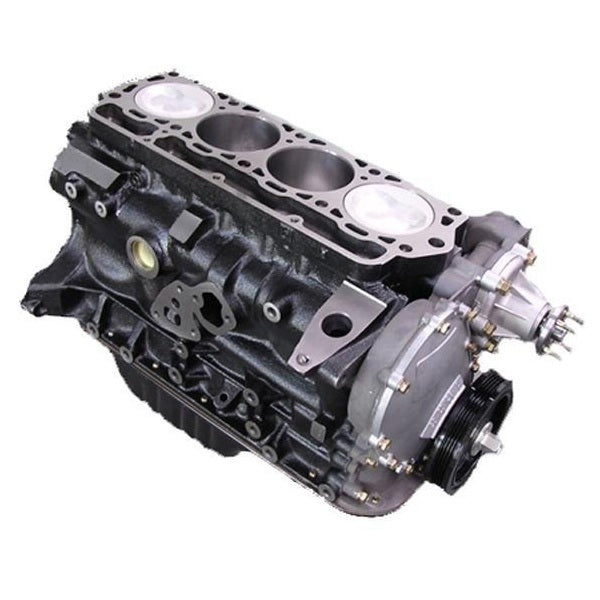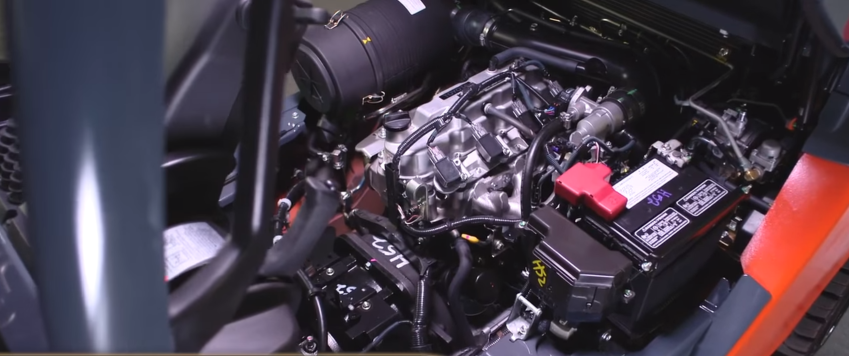How the 4Y Engine Powers Your Vehicle with Efficiency and Reliability
How the 4Y Engine Powers Your Vehicle with Efficiency and Reliability
Blog Article
Checking Out the Various Kinds of Engine: Which One Fits Your Demands?
In the pursuit to determine the most appropriate engine kind for your particular needs, it is important to assess the distinctive features and advantages of each option offered. Inner combustion engines proceed to control because of their reliability, while electric engines are gaining traction for their sustainability. Hybrid engines provide a versatile compromise, and diesel engines stand out for their power in demanding applications. In addition, alternate fuel engines present ingenious solutions, albeit with certain restrictions. Comprehending your priorities will be crucial in this decision-making procedure, causing an exploration of factors that might influence your choice.

Inner Burning Engines
Internal burning engines (ICEs) are the backbone of modern transportation, powering a vast variety of automobiles from automobiles to airplanes. These engines operate the principle of converting gas into mechanical energy via a series of controlled explosions within a burning chamber. One of the most common types of ICEs consist of fuel engines, diesel engines, and rotary engines, each created to satisfy specific efficiency and efficiency requirements.
Gas engines commonly make use of stimulate ignition, while diesel engines count on compression ignition, leading to distinctive differences in gas efficiency and power result (4y engine). Rotating engines, or Wankel engines, use a portable design and smooth procedure, but are much less commonly utilized in mainstream applications
ICEs have actually undergone considerable innovations in technology, including the introduction of turbocharging and gas injection systems, which enhance overall effectiveness and performance. Despite their efficiency improvements, ICEs encounter boosting analysis due to their ecological influence, specifically relating to greenhouse gas exhausts.
Electric Engines
As concerns regarding environmental sustainability and nonrenewable fuel source dependency grow, electrical engines have actually arised as an engaging choice to inner combustion engines. These engines make use of electrical motors powered by batteries or fuel cells, providing a cleaner and a lot more efficient motive powers.
Among the key advantages of electrical engines is their decreased exhausts. Unlike typical engines that melt nonrenewable fuel sources, electric engines produce absolutely no tailpipe discharges, significantly lowering air contamination and adding to improved public wellness. Additionally, the efficiency of electric motors frequently surpasses that of interior burning engines, converting a higher proportion of energy from the power source right into functional energy for motion.
Electric engines are additionally remarkable for their peaceful procedure, making them suitable for city environments. 4y engine. The simpleness of their design causes less moving components, which can result in minimized upkeep costs and boosted dependability with time
Nonetheless, difficulties remain, consisting of battery production impacts, charging facilities, and range restrictions. In spite of these obstacles, the growing investment in electrical vehicle innovation and renewable energy resources points towards an encouraging future for electrical engines, placed to play a critical role in the shift toward lasting transport.
Crossbreed Engines
Mixing the advantages of both standard and electrical interior burning engines, hybrid engines represent a versatile solution in the quest for reliable and lasting transport. These engines incorporate a gas or diesel motor with an electrical motor, enabling for improved fuel performance and lowered exhausts contrasted to standard lorries.
Hybrid engines run in a our website number of settings, using the electric motor for low-speed driving and the interior burning engine for greater speeds or when more power is needed. This dynamic procedure not only improves gas economic climate however additionally adds to a smoother driving experience. Regenerative stopping is an additional critical function, catching energy normally lost during braking and rerouting it to reenergize the battery.

As customers progressively prioritize eco-friendliness, hybrid engines attract attention as a functional selection, providing an effective equilibrium of efficiency, efficiency, and environmental responsibility. This versatility makes them appropriate for metropolitan travelling and long-distance traveling alike.
Diesel Motor
Performance and power are characteristics of diesel motor, which have actually long been preferred for their robustness and fuel economic situation. These engines operate on the principle of compression ignition, where air is pressed to a heat prior to fuel is injected, sparking it without the need for ignition system. This process makes it possible for diesel engines to attain greater thermal performance compared to gas engines, equating into much better fuel mileage and reduced carbon dioxide discharges.
Diesel engines are particularly well-suited for durable applications such as trucks, buses, and industrial equipment, where torque and durability are critical. Their style commonly includes stronger components to endure the greater pressures created during operation, resulting in longer solution life and minimized upkeep prices.

Alternate Fuel Engines
While diesel motor have long dominated the landscape of sturdy power resources, alternative gas engines are obtaining grip as practical alternatives for a much more lasting future. These engines utilize a range of fuels, such as pressed gas (CNG), hydrogen, ethanol, and propane, aiming to reduce greenhouse gas emissions and reliance on nonrenewable fuel sources.
One substantial benefit of alternative gas engines is their possible to reduced carbon footprints. For example, CNG engines emit fewer pollutants compared to standard diesel engines, making them suitable for metropolitan transportation systems and fleets looking for to boost air top quality. Ethanol, stemmed from biomass, not only reduces emissions yet likewise supports farming economic climates.
Hydrogen gas cells represent an innovative growth in this world, using zero-emission power with a chain reaction in between hydrogen and oxygen. Challenges such as infrastructure advancement and manufacturing costs stay challenges to prevalent adoption.
Verdict
Finally, picking the proper engine kind requires careful factor to consider of specific needs and preferences. Interior combustion engines provide dependability, while electrical engines prioritize sustainability and decreased maintenance. Crossbreed engines integrate the advantages of both, improving effectiveness, whereas diesel motor give premium power and torque for sturdy applications. Alternate gas engines existing eco-friendly alternatives, albeit with potential framework difficulties. Ultimately, an extensive evaluation of driving habits and environmental worths will certainly facilitate a notified decision regarding engine option.
Hybrid engines supply a versatile compromise, and diesel engines stand out for their power in requiring applications. The most typical kinds of ICEs consist of gasoline engines, diesel engines, and rotating engines, each developed to meet specific performance and efficiency needs.
Unlike typical engines that burn fossil fuels, electrical engines generate absolutely no tailpipe discharges, dramatically lowering air contamination and contributing to improved public wellness.Crossbreed engines run in numerous modes, using the electrical motor for low-speed driving and the internal burning engine for greater rates or when more power is needed. his response Hybrid engines incorporate the benefits of both, improving performance, whereas diesel engines offer exceptional power and torque for heavy-duty applications.
Report this page